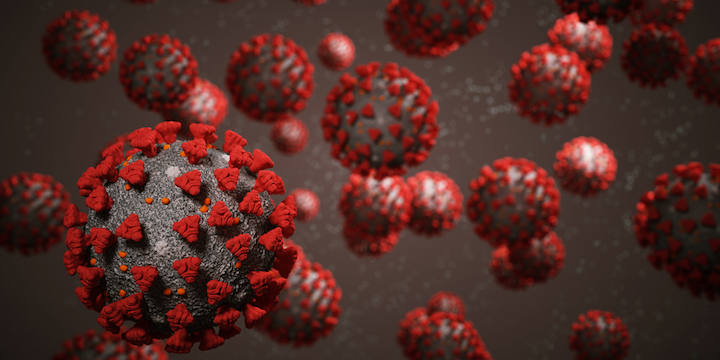This is the first description of reinfection with the South African variant causing severe Covid-19, Paris hospitals (AP-HP) said on Friday February 12.
A first case of serious reinfection by the South African variant of the coronavirus has been described by French researchers,
“This case illustrates the fact that the (South African) variant may be responsible for a serious reinfection after a first mild infection” with the classic coronavirus, write the researchers in their study, published Wednesday, February 10 in the journal Clinical Infectious Diseases .
“This is, to our knowledge, the first description of a reinfection with the South African variant causing severe Covid-19, four months after a first moderate infection,” they add.
Is the second reinfection supposed to be less severe?
Cases of reinfection with variants, British, South African or Brazilian, have already been documented in the scientific literature, but most often the second episode is less severe than the first.
Moreover, these cases of reinfection are probably more numerous in reality than those identified and described as such in medical journals.
The chronology of reinfection of the first case in France
The case described by French researchers is that of a 58-year-old patient.
As of September 2020, this man, with a history of asthma, suffers from a fever and has moderate difficulty breathing. A SARS-CoV-2 infection is diagnosed with a PCR test. The symptoms disappear within a few days, and the man tested negative twice in December.
In January, he was readmitted to the emergency room of the Louis-Mourier hospital (AP-HP) in Colombes, near Paris, for breathing difficulties and fever. His PCR test is positive again, and genetic sequencing shows the presence of mutations characteristic of the South African variant.
Seven days later, the patient develops an acute respiratory distress syndrome which requires intubation and being placed on a life support device. He was still in critical condition when the study was submitted for publication in the medical journal.
At the beginning of his hospitalization, serological tests detected in the man the presence of antibodies proving a past infection. This suggests that “the immunity developed after the first infection did not prevent reinfection by the South African variant,” said AP-HP in a press release.
 Cherry tomatoes contaminated with salmonella: 92 sick and 1 dead
Cherry tomatoes contaminated with salmonella: 92 sick and 1 dead  A better coaching method can make a person grow
A better coaching method can make a person grow  What is the method to prevent diabetes in children?
What is the method to prevent diabetes in children?  What are the effective factors in causing stomach ulcers?
What are the effective factors in causing stomach ulcers?  Why do embarrassing memories seem to appear at night?
Why do embarrassing memories seem to appear at night?  The amazing link between SARS-CoV-2 infection and newly started diabetes
The amazing link between SARS-CoV-2 infection and newly started diabetes  WHO says monkey pox is not a global emergency right now
WHO says monkey pox is not a global emergency right now  Single cell RNA sequencing uncovers new mechanisms of heart disease
Single cell RNA sequencing uncovers new mechanisms of heart disease  Hepatitis of unknown origin: 3 new deaths and 228 cases worldwide
Hepatitis of unknown origin: 3 new deaths and 228 cases worldwide 